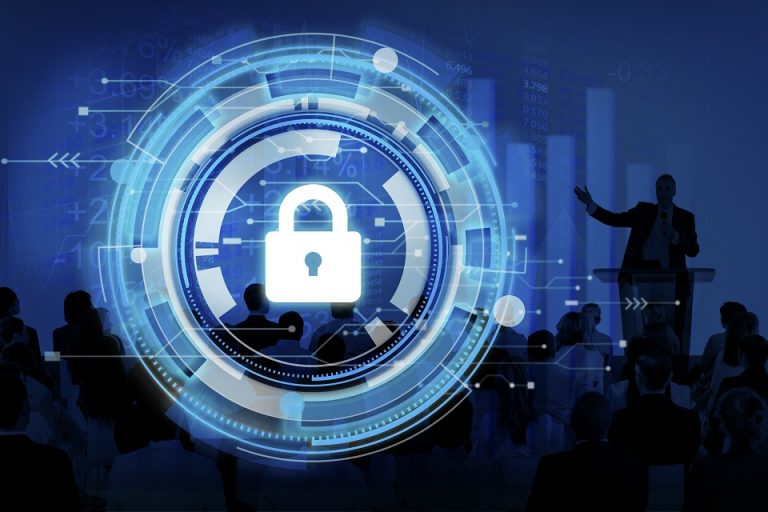The term “Cyber-Security” refers to the process of being cautious and taking precautions while engaging in online activities and seeking help when one encounters anything suspicious.
Before we start, let me tell you of one thing, you can publish your best technology blogs here on our website. Now let us look at some best practices to secure cyber-security for businesses that employees should be aware of.
Using Strong Passwords
The use of strong and complex passwords can act as a barrier against cyber-thieves from accessing confidential information essential for the company. A cyber-criminal can hack into a company’s important files if the password is weak and therefore it is necessary to create complex and unique passwords.
The password must contain at least 10 characters and include alphabets (capitals and lower case), numbers, and symbols in unique combinations. Change passwords on a regular basis to reduce the chances of hacking as much as possible
Use Of Firewall Protection
Enabling firewall protection for the company is the first line of defense to protect data from cyber-crimes. By doing so, unauthorized users are denied access to the company’s private information, thereby reducing the chances of cyber-attacks.
Connection To Secure WIFI
A company should use secure, hidden, and encrypted WIFI networks. A VPN (Virtual Private Network) is compulsory if employees access company’s network from outside. Private WIFI networks are risky and company data might be vulnerable to unwanted interceptions.
It is advisable for the company to use powerful VPN protections that can keep the company’s information private on public WIFI networks.
Avoiding Unwanted Pop-Up Notifications, Links, Etc
Pop-up windows and malicious links may contain embedded viruses and malware in them. Therefore it is essential for employees to be aware of e-mail attachments and links that look suspicious and not click on them.
Email authentication technology can block suspicious emails. The blocked email gets stored in a quarantine folder and the company or its employees can check its legitimacy.
Creating File Back-Ups And Installation Of Security Software Updates
The security software, operating systems, and web browsers of the company must be kept protected with the latest software updates. The use of updated anti-virus and anti-malware systems helps to cope with new cyber-threats.
It is important to secure data and keep back-up files in case of a malware attack or data breach as cyber-threats mostly aim at the company’s data. Better to store important files on external hard drives or in the cloud.
Restricting Third-Party Access
It is important to restrict third-party access to certain data. Better to revoke the access of former employees and consultants who once worked for the company when their contract is over.
Data breaches may occur from within the company and therefore it is necessary for the company to limit employee access to confidential information of the company and its clients.
Installation Of Biometric Security
The use of a biometric security system ensures more secure authentication and employee monitoring than passwords. It is important to verify user identities before providing valuable access to vital assets of the company.
Fingerprint scanning, voice recognition, palm, and face biometrics are some options of biometric security systems.
Use Of Multi-Factor Authentication
Multi-factor authentication (MFA) helps to protect data by adding extra layers of security. Suppose a cyber-criminal gains access to a password, they would still need the second or third-factor authentication like fingerprint or voice recognition to access vital data of the company.
Lock Unattended Devices
Lock the devices like laptops, phones, tablets, flash drives, and external hard drives when unattended so that no one else can use it.
For desktop computers, better to lock the screen or shut down the system when not in use.
Training Employees
Smart companies train their employees to make them know about the basics of the company’s cyber-security policies and make sure that they follow the instructions accordingly.
Technical staff needs proper training in the process of allowing access. Basic knowledge of hardware terms is helpful as it saves time to resolve technical issues. A clause must also be there in the employee’s contract that states violation of cyber-security policies will lead to consequences.
Data Classification
It is important to classify data for the company to know which employees have access to which data, so that if anything goes wrong the company will know which employees are to be questioned.
Caution For Online Banking And Shopping
The company should use secure devices and secure networks for online transactions of money for banking or shopping.
Password Manager
Password managers should take responsibility for generating new and unique complex passwords for sites and devices.
Avoid using the same passwords for multiple sites.
Caution For Social Media
The company and its employees must be careful about what they share on social media. Cyber-criminals can gain access to sensitive information from the careless sharing of confidential data of the company on social media.
Overwriting On Deleted Files
Deleting a file or a folder on a computing device does not mean that the data is deleted permanently. Cyber-thieves can easily recover the data often exists in the disks.
To ensure that the data is deleted permanently, better to use tools to overwrite it.
Conclusion
Nowadays, cyber-thieves are advancing the level of cyber-crimes as well. Therefore it is important for companies and employees to focus on the above-mentioned way of making cyber-security a top priority for running business organizations without hindrance and threats from cyber-crimes.
Before you leave, you can also check the latest tech blogs to follow. Please share your tech knowledge by writing tech blogs for us.



